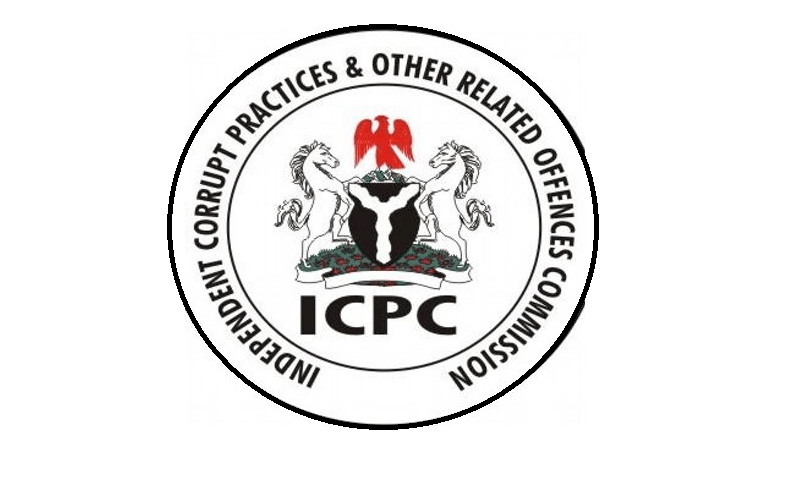We’ll rid Nigeria of corruption – ICPC
The Chairman, Independent Corrupt Practices and Other Related Offences Commission (ICPC) Prof. Bolaji Owasanoye has said that the commission would support the Buhari administration in ridding the country of corruption. He said this while declaring open the Consultative Meeting of the Network of Anti-Corruption Institutions in West Africa (NACIWA) to “Develop Faculties for Training on […]

The Independent Corrupt Practices and other Related Offences Commission (ICPC)
The Chairman, Independent Corrupt Practices and Other Related Offences Commission (ICPC) Prof. Bolaji Owasanoye has said that the commission would support the Buhari administration in ridding the country of corruption.
He said this while declaring open the Consultative Meeting of the Network of Anti-Corruption Institutions in West Africa (NACIWA) to “Develop Faculties for Training on Corruption Risk Assessment (CRA) held in Abuja on Thursday.
The training was organised by the Economic Community for West African States (ECOWAS) Commission.
Owasanoye said that the adverse effects of corruption on Africa and the sub-region eroded our values and destroyed humanity.
“It undermines the rule of law, breaches due process of governance, it produces poor infrastructure and services, and it dispenses justices to the rich, creates unemployment and discourages foreign investment.
“In another vein, corruption in law enforcement creates criminal cells, and sense of impunity by criminal groups.
“Corruption diverts public resources into private hands, it increases the cost of business; it instigates civil strife and unrest due to inequality in the distribution of resources and opportunities; it promotes poverty among other vices.
“The ICPC appreciates these threats and particularly the broken processes and procedures which are exploited by corrupt and criminally-minded individuals, and we are committed to riding the country of them,” he said.
The chairman said that the commission believed that prevention was vital to controlling and eradicating corruption.
He said that ICPC’s prevention tool included Systems Study and Review and Corruption Risk Assessment (CRA).
“Corruption Risk Assessment is an extended version of system studies and reviews but with some proactivity which like all compliance programmes are fundamental to law enforcement.”
He said that constant training and capacity building for anti-corruption officials to appreciate, understand and cope with the changing and emerging trends of corruption and corrupt practices was truly laudable.
Owasanoye said that if the fighters of corruption were to have an edge over criminals, then they must improve their capacities in all areas.
Director, Political Affairs, ECOWAS Commission, Dr Remi Ajibewa expressed the Commission’s appreciation to the leadership and member institutions of NACIWA, for honoring the invitation.
Ajibewa was represented by Mr Eyesan Okorodudu Head, Democracy and Good Governance Division of the commission.
He said that there was need to make transparency and accountability grow side-by-side with democracy which were essential to reinforce democratic process.
Ajibewa further said that the welfare of the ordinary Community citizen had continued to dwindle largely due to the prevalence of corruption which had stalled ample delivery of basic needs and services in most of the Member States.
“Corruption, although is a global phenomenon, continues to be at the epicenter of governance deficit in the ECOWAS region.”
He said that in order to address this challenge, ECOWAS had adopted a citizen-based approach, particularly after the coming into force of the Protocol on the Fight Against Corruption.
“Our approach in this direction places responsibility on citizen to act as watchdog for promoting transparency and accountability in governance processes, both in the private and public sectors.
“To this end, the ECOWAS Whistleblower Protection Policy was adopted as a guide for member states to develop their own whistleblower protection legislation.”
Executive Director, MacArthur Foundation, Dr Kole Shettima, said that in the last three years, Nigeria had witnessed renewed interest to combat corruption.
Shettima, who was represented by his deputy, Dayo Olaide said that conducting corruption risk assessment was necessary to the fight against corruption.
He said that corruption risk assessment had been conducted in various sectors of the economy including port, health and water.
“In 2013, an assessment of the port was led by ICPC but there is the need to conduct CRA in that sector as there were still challenges as the sector has remained opaque and with a lot opportunities for corruption to take place.” (NAN)
